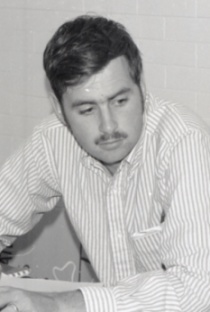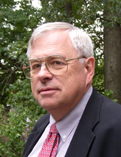WARREN MUIR
Then:
PhD student in Physical and Organic Chemistry; Chairman of Education Committee of NSBE, organizing committee for Project Survival event, NSBE chairman and speaker.

Now:
Executive Director, Division of Earth and Life Studies, National Academy of Sciences, National Academy of Engineering, Institute of Medicine, National Research Council, Washington, D.C; Warren has served under three U.S. Presidents and is the recipient of multiple honors and awards including the Environmental Protection Agency's Outstanding Service Award. In addition to his professional work, Warren has been deeply involved in furthering peace in Northern Ireland through the Children's Friendship Program and in Cyprus through the Cyprus Friendship Programme, HasNa, Inc.

How did you get involved in NSBE?
"There was a small group who had a talk one evening in the bio building (CRESAP) and there was a speaker there - Jim Reisa - and Casey Jason who were talking about pollution and that we should do something about it. I liked their focus on honest information, that we should inform ourselves. I was attracted to what they were saying, what the organization was doing - I joined in, got involved. We became student experts."
Memories of Project Survival:
"We decided to hold this event and wanted to invite a keynote speaker. So we got up a list of names and sent them all invitations, hoping to get one, and they all accepted! As the word got out, 3 or 4 radio stations asked if they could broadcast it - so we started reserving rooms for the stations; then CBS TV said they wanted to cover it, and we needed a classroom for them. We had to ask the University if they could rewire the room for Klieg lights - by this time, the University was beginning to realize that this was a large deal. There were easily 10,000 people there. We were working with Gaylord Nelson, Denis Hayes and John Turner."
There was great communication between environmental groups across the country, and word had gotten out.
"It was a unique period of time - the country was so divided. Environment was the one thing everyone could come together on, could say yes to. We tapped into the times."
Effecting change:
NSBE's efforts extended far beyond the Project Survival event of January 23rd. Their members worked on environmental research for the public good, gave hundreds of speeches and affected policy in a remarkably short time.
"NSBE was responsible for the first ban on phosphates in the whole country, right here in Illinois. Our efforts continued after Project Survival - I testified at the Illinois State Constitutional Convention. We were responsible for getting the environmental plank in the revision of the Constitution."
The Illinois Constitution, ratified in 1970, now includes: Article 11, Environment, grants each person the "right to a healthful environment." It sets this as public policy and the duty of individuals to ensure a healthful environment be maintained.
When asked about the effect of his involvement in Project Survival and NSBE, Warren replied, "It completely changed my life in a remarkable way. Immediately after I got my degree, I became the first environmental scientist in the White House, on the President's Council for Environmental Quality.* I was handed the entire scientific portfolio. Here I was, a physical and organic chemist, fresh from graduate school and all of a sudden I'm responsible for shaping the first environmental standards. I received my degree on Thursday, and by Monday I was moving to Washington to work for the White House."
"I learned that individuals can change the world. You just have to jump in and do something."
(*The Council on Environmental Quality (CEQ) coordinates Federal environmental efforts and works closely with agencies and other White House offices in the development of environmental policies and initiatives. CEQ was established within the Executive Office of the President by Congress as part of the National Environmental Policy Act of 1969 (NEPA) and additional responsibilities were provided by the Environmental Quality Improvement Act of 1970.)
